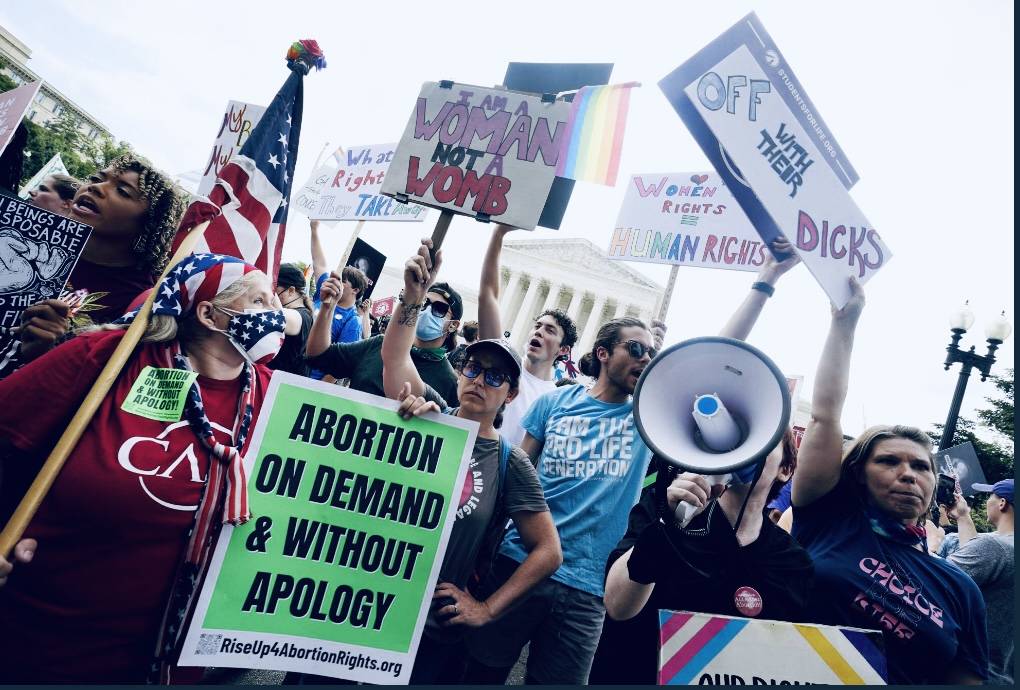On June 24, the U.S. Supreme Court overturned Roe v. Wade, a judgment from 1973 that had established an abortion right under the Constitution. Although the timeframe of these legislation taking effect varied, it was anticipated that the decision would result in abortion prohibitions in around half of the states.
While some states under Republican control outlawed or severely restricted abortion right once, others will implement their restrictions over time. Texas, at least, waited until after the Supreme Court delivered its formal ruling in the case, which is distinct from the June opinion and may take around a month. However, the Texas Supreme Court has decided that a 1925 abortion ban that had lain dormant since is now in force.
Several states, headed by Democrats, took action to safeguard access to abortion in advance of the ruling. The judgment also created the possibility of legal disputes between the states on the legality of suing or prosecuting abortion providers and those who assist women in getting abortions.
Here is a summary of abortion laws and the anticipated effects of the court's ruling in each.
Republican governor and a majority-Republican legislature in Alabama want to outlaw or restrict access to abortions.
Background: In 2019, Alabama lawmakers passed what was at the time the nation's strictest abortion ban, making it a crime to have an abortion at any stage of pregnancy without providing any exceptions for pregnancies brought on by rape or incest.
There would only be an exemption if the woman's health was in grave danger. In accordance with Roe v. Wade precedent, a federal judge imposed an injunction prohibiting the state from enforcing the law. Voters in Alabama approved an amendment to the state's constitution in 2018 that clarifies that the state "does not defend the right to an abortion or necessitate the funding of abortion" and that it "recognizes the rights of unborn children." Inducing an abortion is illegal and is punishable by up to 12 months in jail, unless it is done to protect the mother's life or health. This law was passed in 1951.
Effect of Supreme Court decision: On June 24, nearly all abortions were prohibited in Alabama. A state abortion ban that went into effect in 2019 made it illegal to have an abortion at any stage of pregnancy. There were no exceptions made for rape or incest-related pregnancies.
The three clinics all halted performing abortions that morning out of concern for possible legal action under the state statute from 1951. Several hours later, U.S. District Judge Myron Thompson approved Alabama's request to lift the injunction and permit the state to carry out its 2019 abortion ban. Beyond the one exemption permitted under the 2019 law, which is for the mother's health, providing an abortion in Alabama is now a criminal, according to Alabama Attorney General Steve Marshall.
If doctors break the law, they might spend up to 99 years behind bars. The requirement that doctors performing abortions have hospital admitting privileges is one of several earlier abortion restrictions that Marshall indicated the state will also attempt to abolish.
What's next: According to some Republican legislators, the state need to replace the 2019 ban with a slightly less restrictive measure that would provide exceptions in situations of rape or incest.
Supporters claimed that the 2019 prohibition was made purposefully harsh in order to provoke a legal challenge to Roe.
Political control: Although Republicans presently possess a majority of seats in the Legislature, a bipartisan coalition led mostly by Democrats currently holds control of the House. Of the 60 seats in the Legislature, 49 are up for election this year.
Gov. Mike Dunleavy, a Republican who believes that life begins at conception, is running for reelection.
Background: The Alaska Supreme Court construed the state constitution's right to privacy to include the right to an abortion.
Effect of Supreme Court decision: Given Alaska's legal precedence, the decision did not immediately impair the state's ability to access abortions.
The decision of whether to conduct a constitutional convention will be put to voters in the fall, as it is once every ten years. Many conservatives see an opportunity in pressing for a convention in order to change the selection process for judges and end the notion that the right to privacy section of the constitution permits the right to abortion.
Recent attempts to have a constitutional amendment passed by the Legislature have failed.
Republicans hold political sway over both houses of Congress. Due to term limits, Republican governor Doug Ducey will step down in January.
Background: Although Arizona law permits abortions up to 22 weeks, the Legislature enacted a 15-week abortion ban in March that was modeled after the Mississippi statute that was challenged in the Supreme Court.
Sept. 24 marks the start of it. A 2021 rule that makes it a crime for a doctor to terminate a pregnancy because the fetus has a survivable genetic defect is another restriction that now exists. A pre-statehood provision that would outlaw all abortions is also in effect in Arizona, though it has not been put into effect since the Roe decision.
Effect of Supreme Court decision: Ducey has asserted that the statute he signed in late March supersedes the ongoing total ban. However, the law clearly states that it does not supersede the long-standing ban on all abortions. Because of worries that the pre-Roe ban could result in charges against doctors, nurses, and other providers, abortion clinics throughout the state ceased all procedures.
The pre-statehood statute may be implemented, according to Republican state attorney general Mark Brnovich, who made the statement on June 29. Brnovich declared he would try to have an injunction lifted that had been in place since shortly after the Roe ruling. The following day, the U.S. Supreme Court gave Arizona permission to enforce a law prohibiting abortions performed solely due to a fetus's genetic abnormality.
The portion of the 2021 Arizona law that was stopped by a federal judge last year because it was too unclear, but the judge will now have to revisit his or her decision. On July 12, the same federal judge invalidated a different provision of the law that gives all rights to fertilized eggs or fetuses.
After Roe was overturned, abortion rights organizations once again contested it, claiming that it may be used to convict doctors who perform otherwise legal abortions of assault, child abuse, and other crimes. The judge concluded that it was probably too ambiguous under the Constitution.
The next step is to urge a judge to lift the injunction preventing Brnovich's office and one county from implementing the pre-statehood comprehensive abortion ban, according to what he has indicated.
In order to ask voters in Arizona to enshrine the right to abortion in the state constitution come November, they were required to gather a certain number of signatures by the deadline of July 7. They had just over seven weeks to gather roughly 360,000 legitimate signatures, so their last-ditch effort was a long shot.




No comments yet
Be the first to share your thoughts!